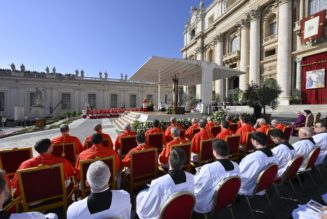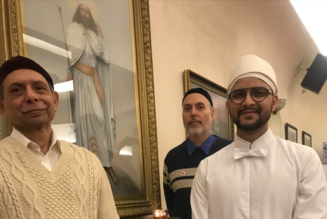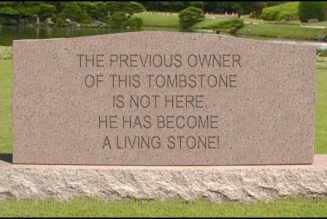“I shall reproach him because he attaches little importance to the most important things and greater importance to inferior things.”
Socrates in Plato’s Apology
Saying ‘no’ to some things has great importance in life because we want to say ‘yes’ to something else. This is rooted in the way things are.
The Christian observance of Lent is multi-faceted, and is likewise rooted in the way things are. Long experience has shown that certain practices are key means of helping us become ourselves. Though at times we would rather not face it, becoming who we should be is a life-long and highly intentional project.
In his great ‘apology’ or defense of his life, Socrates gives a life-principle that echoes through the ages because it goes to the heart of human life. The issue is not just what we believe or think to be most important; it is whether we choose to live as though what is most important actually is most important. So simple, so challenging.
Socrates’ reproach, which surely speaks to all of us, gives basis for serious self-examination as well as for resolving on certain courses of action. There are less important things that loom too large for us, in our hearts, desires, and choices. They are not themselves bad, but they are definitively less important. And the further reality is that they can tend to squeeze out our attention to what is more important. Therein arises the challenge and the drama.
Saying yes to the more important things demands our saying no—in varying degrees—to other things in our life.
We don’t want to see this, and we certainly aren’t inclined to act on it. Socrates observed this with clarity. And so there is Lent. The gift of Lent. Here is an opportunity to take stock of the order, the hierarchy in our lives. Each of us lives each day according to some hierarchy—often one that in varying degrees does not correspond to the hierarchy we hold in our minds to be true.
How might we take up certain practices—including simply saying some no’s, at least for a time—in service of re-ordering our days, in view of the root yes’s that give meaning and direction in our life? Asking and answering this question is a great gift of Lent.
Plato (427-347 B.C.), a student of Socrates, and teacher of Aristotle, is considered one of the greatest philosophers of all time. The Apology is his account of the trial of Socrates, at which he was present.
“If beams from happy human eyes have moved me not…” Robert Louis Stevenson, A Message of Joy For many of us, when and whether to wear a mask is a painful and divisive issue. Maybe in some places it is not; or maybe if we all had a better understanding of certain…
*This is a reposting of the first piece I ever posted online, almost exactly eight years ago, at Front Porch Republic. It has remained one of the most popular I’ve posted. Also, here is short video sharing my joy in splitting wood. Hilaire Belloc once wrote that he…
“Besides, friendship is especially necessary for living…” Aristotle, Nicomachean Ethics There are two reasons we might not give true friendship the priority it deserves. For some, it seems to us that we already have it. Or in any case, it is not evident to us that…
Husband, father, and professor of Philosophy. LifeCraft springs from one conviction: there is an ancient wisdom about how to live the good life in our homes, with our families; and it is worth our time to hearken to it. Let’s rediscover it together. Learn more.

Join us!
Please enter your email address to receive a Wednesday Quote and Reflection once a week. I would be honored to be partners in mining the wisdom of the ancients.
You have Successfully Subscribed!
Join Our Telegram Group : Salvation & Prosperity











